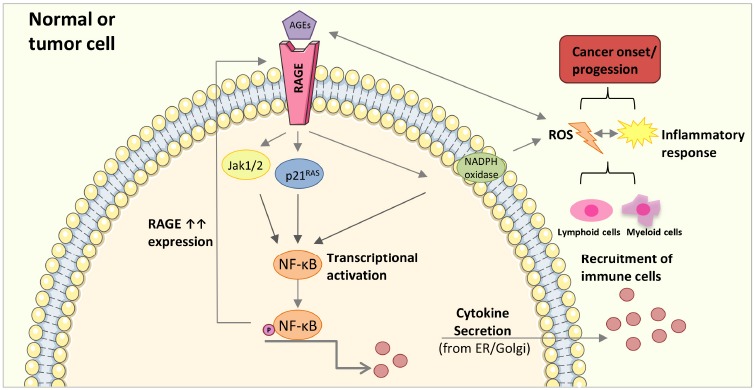Fig. (1).

Simplified AGE-mediated activation of an inflammatory response leading to cancer onset and/or progession. AGE-RAGE interaction triggers the activation of transcription factors transducing inflammatory signals, mainly NF-κB, leading to an increased cytokine secretion, followed by lymphoid and myeloid immune cells recruitment into the tumor microenvironment, elevated ROS production, and an inflammatory response. NF-κB activation also increases RAGE expression, creating a positive feedback cycle. In addition, reactive intermediates generated during AGE formation can directly increase ROS production promoting the immune response and the formation of further AGEs creating a chronic inflammatory state. Membrane and RAGE receptor illustration were used from Servier Medical Art under creative commons license 3.0 (https://smart.servier.com/).
